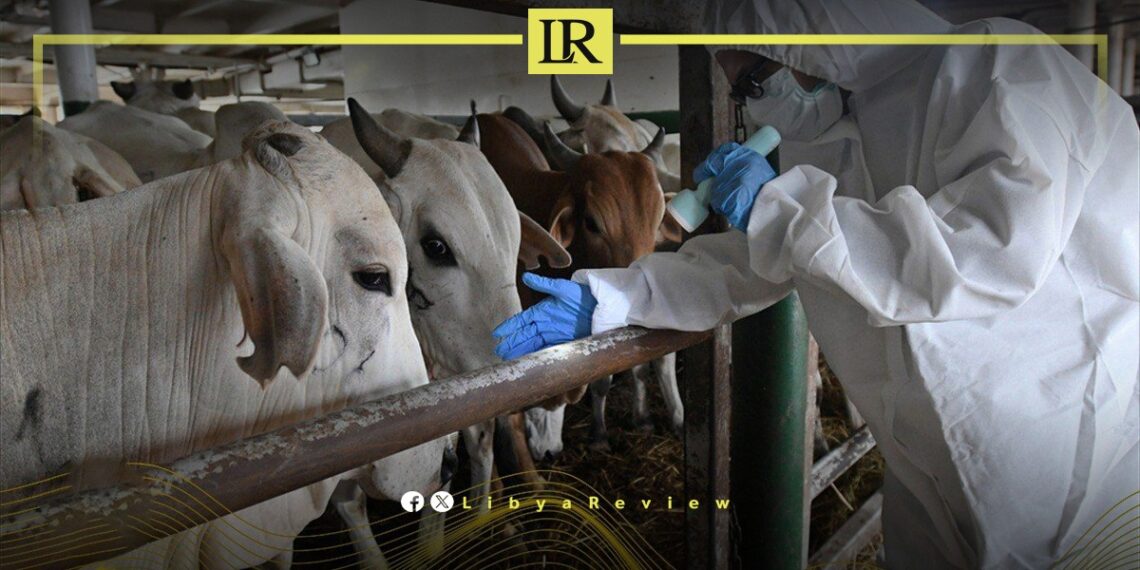The head of the National Centre for Animal Health in Libya has issued a caution about the spread of Foot-and-mouth disease (FMD), predicting potential economic crises and meat price increases within two years.
Abdulrahman Ajbail clarified that while the disease doesn’t pose a threat to adult livestock, it does result in fatalities among lambs under six months old.
He explained that FMD spreads among animals, with some recovering from it, and assured that it does not transmit to humans.
Ajbail emphasized the efforts of monitoring teams in containing the disease and stressed the importance of providing necessary vaccines before the situation escalates.
In December, Libya established a joint task force to combat the health crisis posed by Rift Valley Fever, a zoonotic disease primarily introduced to the country through smuggled animals.
Rift Valley Fever is a viral disease that affects both animals and humans, posing a significant threat to public health and the livestock industry. It can cause severe symptoms, abortions, and a high mortality rate in infected livestock, resulting in substantial economic losses.
Sami Al-Dhawi, the Minister of Local Governance, underscored the urgent need for a comprehensive strategy to combat the disease, along with other prevalent animal diseases such as nodular skin disease and bluetongue. He called for unified action to effectively counter the epidemic as outlined in the plan.
In November, the outbreak of Contagious Nodule Dermatitis among cattle in the Al-Bayda municipality of Libya has surged, with over 360 cases and 39 livestock deaths.
According to Saleh Abu Mbarka, the Director of Animal Wealth Management in the Al-Jabal Al-Akhdar region, the disease has now spread to the Marj municipality, affecting more than 1,300 cattle and causing over 100 deaths.
In a press statement, he urgently appealed to the relevant authorities for support, highlighting the swift transmission and substantial prevalence of the disease.


